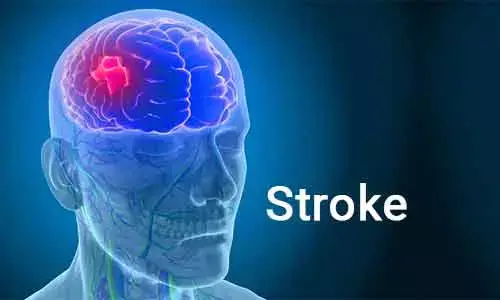- Home
- Medical news & Guidelines
- Anesthesiology
- Cardiology and CTVS
- Critical Care
- Dentistry
- Dermatology
- Diabetes and Endocrinology
- ENT
- Gastroenterology
- Medicine
- Nephrology
- Neurology
- Obstretics-Gynaecology
- Oncology
- Ophthalmology
- Orthopaedics
- Pediatrics-Neonatology
- Psychiatry
- Pulmonology
- Radiology
- Surgery
- Urology
- Laboratory Medicine
- Diet
- Nursing
- Paramedical
- Physiotherapy
- Health news
- Fact Check
- Bone Health Fact Check
- Brain Health Fact Check
- Cancer Related Fact Check
- Child Care Fact Check
- Dental and oral health fact check
- Diabetes and metabolic health fact check
- Diet and Nutrition Fact Check
- Eye and ENT Care Fact Check
- Fitness fact check
- Gut health fact check
- Heart health fact check
- Kidney health fact check
- Medical education fact check
- Men's health fact check
- Respiratory fact check
- Skin and hair care fact check
- Vaccine and Immunization fact check
- Women's health fact check
- AYUSH
- State News
- Andaman and Nicobar Islands
- Andhra Pradesh
- Arunachal Pradesh
- Assam
- Bihar
- Chandigarh
- Chattisgarh
- Dadra and Nagar Haveli
- Daman and Diu
- Delhi
- Goa
- Gujarat
- Haryana
- Himachal Pradesh
- Jammu & Kashmir
- Jharkhand
- Karnataka
- Kerala
- Ladakh
- Lakshadweep
- Madhya Pradesh
- Maharashtra
- Manipur
- Meghalaya
- Mizoram
- Nagaland
- Odisha
- Puducherry
- Punjab
- Rajasthan
- Sikkim
- Tamil Nadu
- Telangana
- Tripura
- Uttar Pradesh
- Uttrakhand
- West Bengal
- Medical Education
- Industry
Excessive BP reduction for acute intracerebral hemorrhage risky when kidneys don't work well

Excessive blood pressure reduction for acute intracerebral hemorrhage is risky in people with decreased kidney function, find researchers at the National Cerebral and Cardiovascular Center in Japan.
Suita, Japan -- Stroke and chronic kidney disease are both difficult to handle in their own rights, but having a stroke when your kidneys are already poor is more than just double the trouble. A new study led by Kazunori Toyoda at the National Cerebral and Cardiovascular Center (NCVC) in Japan shows that excessive blood pressure reduction for acute intracerebral hemorrhage can have dire consequences when kidney function is low. The study was published in the scientific journal Neurology®.
Intracerebral hemorrhage is a disease for which effective treatment is expected to be established. Abnormally high blood pressure is usually observed in the acute phase of intracerebral hemorrhage. Previous clinical studies have shown that intense blood pressure reduction in acute intracerebral hemorrhage patients can improve the clinical outcome. However, excessive blood pressure reduction can damage the kidneys, especially in people who already have chronic kidney disease. "Without a clear understanding of how kidney function affects the overall outcome when controlling blood pressure in these situations, doctors cannot make the best decisions for immediate stroke treatment," senior co-author Masatoshi Koga explains.
Kidney function is typically assessed using the estimated glomerular filtration rate (eGFR), which evaluates how well your kidneys are filtering out toxins from the blood. To determine if kidney function can affect the outcome after intracerebral hemorrhage, the researchers looked at data from an NIH-funded clinical trial, the Antihypertensive Treatment of Acute Cerebral Hemorrhage II (ATACH-2), led by Professor Adnan I. Qureshi, a co-author of this article. In ATACH-2, patients within 4.5 hours of onset of intracerebral hemorrhage were randomly assigned to the intensive antihypertensive group (systolic blood pressure 110-139 mmHg) or the standard antihypertensive group (140-179 mmHg) and maintained in the target blood pressure range for 24 hours. The primary endpoint of the study was the rate of death or severe functional disability at 3 months.
In the current study, researchers divided patients into three categories based on their eGFR at the time of admission, which correspond to normal function, mild loss of function, and decreased kidney function.
The researchers found that the rate of death or disability after stroke was almost 50% in patients with decreased kidney function, compared with about 32% in patients with normal kidney function. They next looked at what happened when patients were treated with an intensive blood pressure-lowering regimen. They found that compared with the standard treatment, the effect of this intense treatment changed depending on the eGFR levels at admission. Among patients with decreased kidney function, the odds of death or disability were higher in patients treated with intensive blood pressure-lowering compared with those with standard blood pressure control. In contrast, the treatment effect (intensive vs. standard) was similar among the other two groups.
First author Mayumi Fukuda-Doi thinks that these findings have important implications. "Although intense lowering of blood pressure can reduce the risk of hematoma expansion and prevent brain damage after stroke, we found that it can harm those with eGFR values less than 60, who have decreased kidney function," she says. "Detailed mechanisms of the effects of excessively lowering of blood pressure in acute intracerebral hemorrhage patients, as well as the appropriate target blood pressure for those with kidney dysfunction, need to be studied. At present, renal function should be considered when deciding the optimal blood pressure range for each patient."
https://n.neurology.org/content/early/2021/07/01/WNL.0000000000012442
Hina Zahid Joined Medical Dialogue in 2017 with a passion to work as a Reporter. She coordinates with various national and international journals and association and covers all the stories related to Medical guidelines, Medical Journals, rare medical surgeries as well as all the updates in the medical field. Email: editorial@medicaldialogues.in. Contact no. 011-43720751
Dr Kamal Kant Kohli-MBBS, DTCD- a chest specialist with more than 30 years of practice and a flair for writing clinical articles, Dr Kamal Kant Kohli joined Medical Dialogues as a Chief Editor of Medical News. Besides writing articles, as an editor, he proofreads and verifies all the medical content published on Medical Dialogues including those coming from journals, studies,medical conferences,guidelines etc. Email: drkohli@medicaldialogues.in. Contact no. 011-43720751


